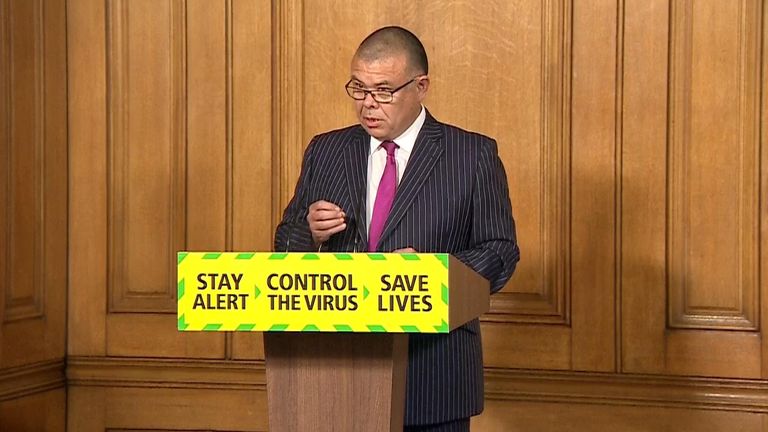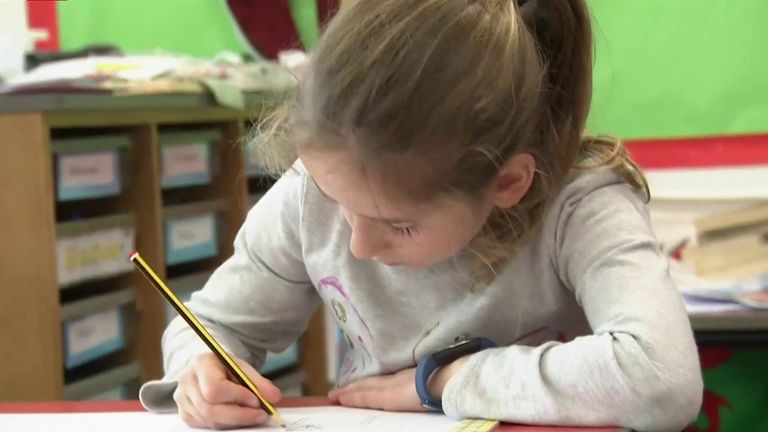Coronavirus: We may have to learn to live with COVID-19 for 'several years', top doctor says
England's deputy chief medical officer says the UK needs to prepare for a potential second peak in the autumn and winter.
Monday 18 May 2020 23:41, UK
People could have to learn to live with the novel coronavirus for "several years", England's deputy chief medical officer has said.
Speaking at the government's daily briefing, Professor Jonathan Van-Tam said the UK will only be "out of this" once there is a vaccine that is "really capable of suppressing disease levels".
"So from that perspective we may have to live, and learn to live, with this virus in the long-term, certainly for many months to come if not several years," he said.
Mr Van-Tam warned the country will have to prepare for the virus to come back in the autumn and winter.
He cautioned that more information is needed on the seasonality of COVID-19, adding: "The data we have on other coronaviruses we have looked at very carefully, and it's not clear that these coronaviruses are as seasonal as influenza.
"But there may be an element of seasonality and it may well be that the autumn and winter conditions provide a better environment for the virus to then do its work again."
There have been concerns that the reintroduction of schools could lead to a second peak in coronavirus cases.
Studies have provided varying evidence on the role of children in transmitting COVID-19, but Professor Van-Tam said the "data are pretty sparse" on whether children can pass the virus on to adults.
"Children are not these kind of big high-output transmitters as they are with flu," he said.
:: Listen to the Daily podcast on Apple Podcasts, Google Podcasts, Spotify, Spreaker
Professor Van-Tam said most children have only "extremely mild" COVID-19 symptoms and the infection rate among them is "about the same" as in adults, but "possibly a little lower" in younger children.
Last month, a study by the Royal College of Paediatricians and Child Health suggested children are less likely to become infected than adults, based on findings by the China and World Health Organisation (WHO) commission.
However, it concluded that "the role of children in passing the disease to others is unknown, in particular given large numbers of asymptomatic cases".
Separate research by Public Health England and the University of Cambridge found children in England are more likely than any other age group to be infected.
Almost one in five children (18%) aged between 5 and 14 years old have contracted the virus, the study suggests.
Asked by Sky News political editor Beth Rigby if the country should have track and trace measures in place before opening schools, Foreign Secretary Dominic Raab said there had been "good progress" on the track and trace scheme.
There have been 61,000 downloads of the app and 21,000 people have been recruited on the Isle of Wight, where the scheme is being trialled, he said.
Mr Raab insisted the government has been "pretty cautious" with its plans to ease lockdown restrictions.






